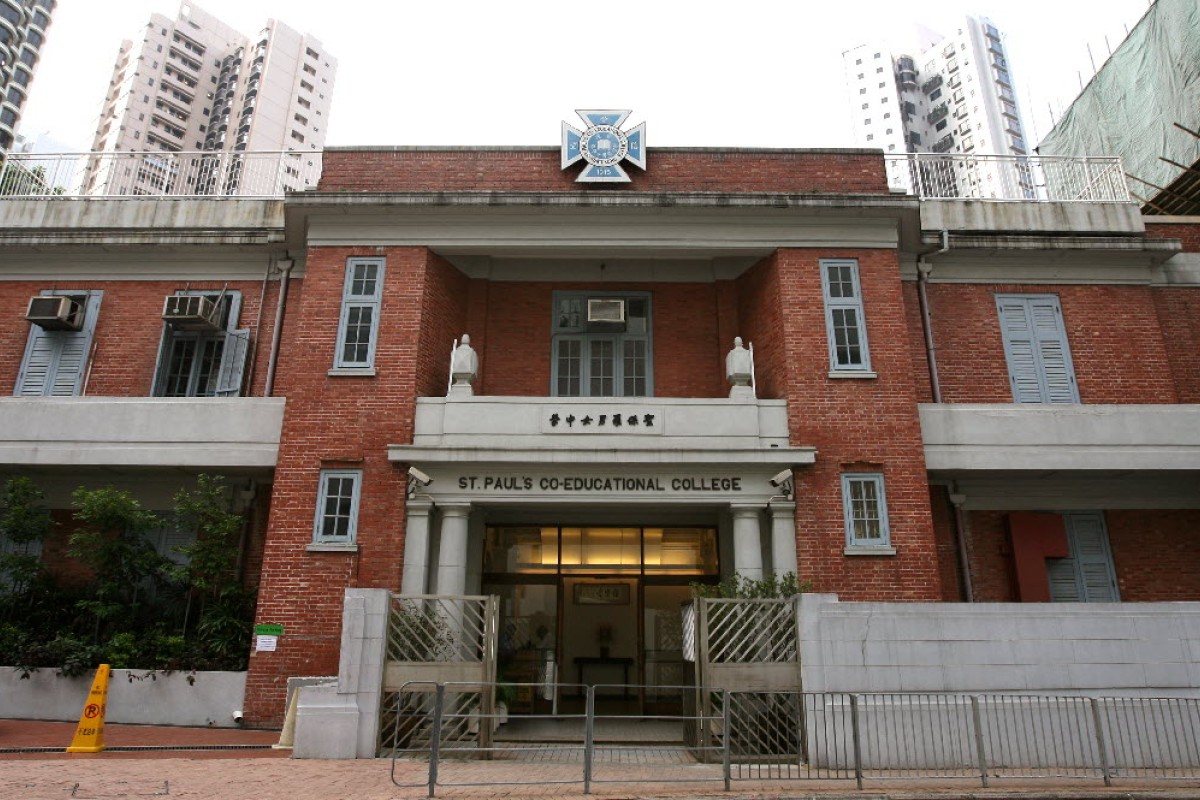
Confucius Hall Secondary School, Caritas Charles Vath College, St Paul’s Co-educational College and Buddhist Fat Ho Memorial College only have enough cash to pay their expenses for less than two months
 St Paul’s Co-educational College is one of four schools that have less than two months' worth of operating expenses in their cash reserves.
St Paul’s Co-educational College is one of four schools that have less than two months' worth of operating expenses in their cash reserves.Hong Kong education officials have been urged to take enforcement action against schools being “risky” with their finances after a study found the reserves of four were at “alarming” levels.
The city’s 72 direct subsidy scheme (DSS) schools, which receive some financial help from the government but also charge fees, are required to have at least two months’ worth of operating expenses in the bank. But a study of 2016-17 financial reports has found the reserves of four schools at the end of the academic year would have kept them operating for less than two months.
Confucius Hall Secondary School, Caritas Charles Vath College, St Paul’s Co-educational College and Buddhist Fat Ho Memorial College – all secondary schools – were found with cash only able to fund expenditure ranging from 0.7 to 1.8 months.
As Ying Wa College celebrates 200th anniversary, here's a look at its history
Under Education Bureau guidelines, schools are supposed to meet the two-month reserves requirement after five years in the DSS.
Hong Kong’s public auditor in 2010 recommended the government take measures to ensure schools complied with the requirement after an examination of accounts found six had failed to do so. But the problem has persisted. DSS schools occupy a middle ground in Hong Kong between public schools fully funded by the government and private schools on no financial support. They therefore have a degree of flexibility in resource deployment, admissions and their curriculum.
An Education Bureau spokeswoman said counsel and support would be provided to the four schools to help improve their financial arrangements and ensure their compliance with the rules.
However, lawmaker Michael Tien Puk-sun, a supervisor at a DSS school, said the bureau ought to take firmer action against operators not performing properly. Officials could start by issuing warning letters to the schools, he said.
Dr Samuel Cheng Kin-tak, vice-chairman of the Direct Subsidy Scheme Schools Council, said it was alarming that some institutions had been found with reserves adequate for less than two months. At least three months’ worth was needed to be considered financially healthy, he said.
“Schools need to hand out salaries every month. If the reserves are for less than two months, the school might have cash flow problems. Schools cannot be too risky.”
Cheng is the principal of United Christian College (Kowloon East), a DSS school. At Confucius Hall Secondary School, which joined the DSS in 2011, the surplus was equivalent to only 0.82 months of annual expenditure at the end of the 2016-17 academic year.
Principal Dr Yeung Wing-hon said a lot had been spent on helping pupils from poorer families with their fees and on organising overseas learning trips to countries including Denmark, Germany and the United States.
“These trips are entirely free for pupils from families on Comprehensive Social Security Assistance,” Yeung said, referring to a Hong Kong welfare scheme.
80 per cent of 2017 DSE candidates get one of their top three Jupas choices
The finances would improve as more pupils enrolled in the school, which was also studying ways to draw more donations, he added.
Wong Wai, principal of Caritas Charles Vath College, also said missing the mark on the surplus could be down to the cost of helping pupils from lower-income families. The school only had enough cash in the tank to fund 1.5 months of spending. Both principals said it was unlikely they would increase fees to fill the gap.
St Paul’s Co-educational College and Buddhist Fat Ho Memorial College had surpluses of 1.8 months and 0.7 months, respectively. The two schools did not reply to queries.
St Paul’s charges secondary pupils between HK$61,000 and HK$91,500 a year, depending on the curriculum studied. Fees for the other three schools range from HK$4,030 to HK$8,400 a year.